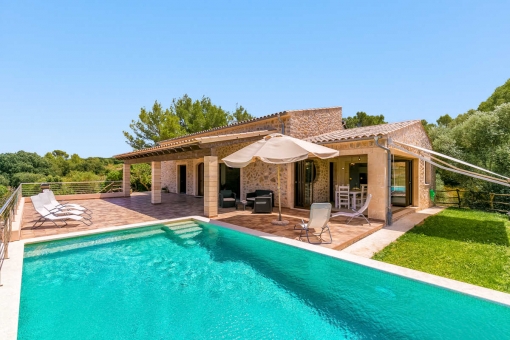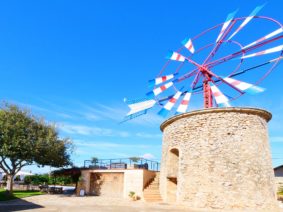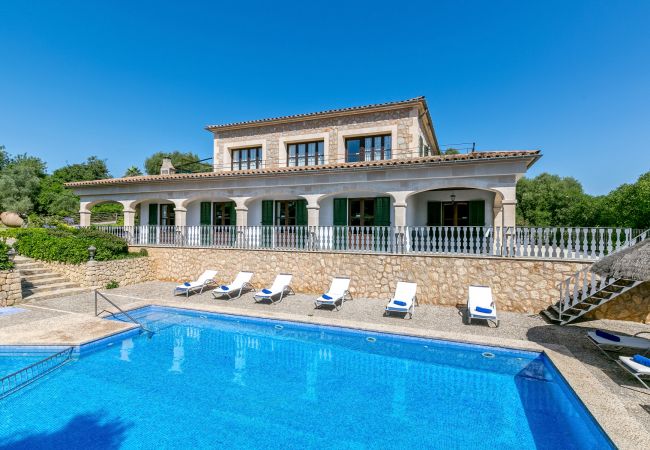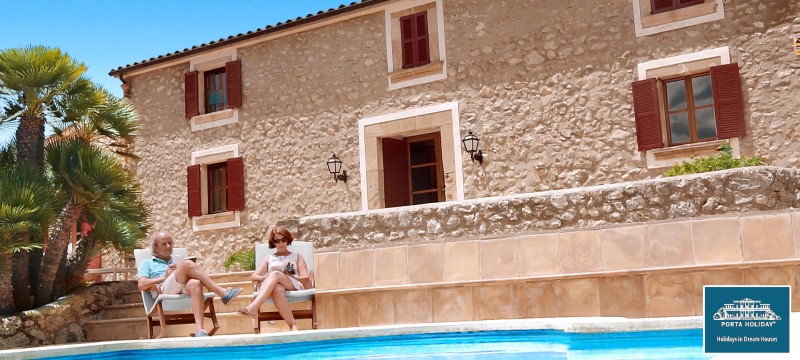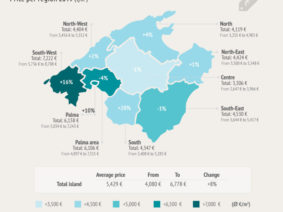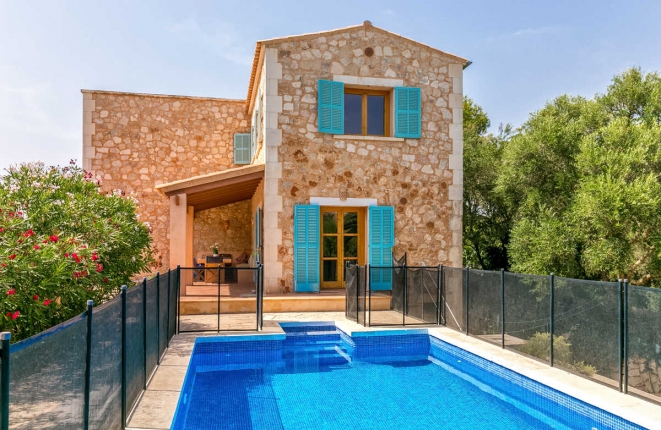Holiday rentals in Mallorca – these criteria must be met
Since 2017 a new law has been in force in the Balearics redefining the requirements for holiday renting. As the letting of apartments is now also allowed the ministry has suspended the acceptance of licence applications until the zoning laws related to the issue of licences have been defined, which should take until the end of July at the latest. Also pending is a regulation with detailed implementation provisions. This means that the practical application has not yet been determined.

In the coming months there will certainly be more news on this subject, but in this blog we will discuss the present state of affairs.
Currently no new properties can be registered for rental but owners/buyers could, in the meantime, prepare their property so that when the moratorium expires they will already have a favourable starting position. The amount of beds will be restricted in future so it is certainly advisable to submit applications as soon as registration starts again.
There follows some of the most important factors required in order to be able to make the house – or the apartment – legal for holiday rental. A complete list with every requirement would go beyond the scope of this blog, so we strongly recommend contacting a specialist lawyer or architect in order to know every single requirement.
One of the most important requirements is certainly the minimum age of the property – it must have been used for other purposes than renting for at least five years in order for the issue of a renting licence to be considered, meaning that buyers of newly-built objects with holiday renting projects will need to find a transitional use for that period. As a consequence of this rule, using holiday renting to claim back sales tax paid on the purchase of the property no longer applies.
A further requirement is the fulfillment of all building regulations. An energy certificate (certificado de eficiencia energetica) must be available as well as an habitability certificate (cedula de habitabilidad). In general almost any infrigement of other regulations, eg. also those outside the normal tourist laws, will lead to additional sanctions by the tourist ministry and withdrawal of the renting licence. As well as this the owner must insure the property with a special liability insurance – normal insurance cover is not sufficient.
With regard to the number of bathrooms, there must be a minimum of one for every four beds which means that with, for example, five beds there must be at least 2 bathrooms available.
A problematical aspect is the rule for mandatory registration with the utility suppliers, with the emphasis on individual meters. Unfortunately the legislation makes no provision for particularly environmentally-friendly properties which are often autarchic and self-sufficient. It remains to hope that this aspect will be taken into consideration in the pending regulations.
For the holiday renting of apartments the legislature has set even higher levels. Many of the regulations are aimed at avoiding conflict with other residents of a muliple-family building. The owner community must give their consent, and the owner of the property in question must, for the duration of the stay of guests, be permanently available by telephone not only for his guests, but also for the community. The guests must be verifiably informed of the regulations in force, and if any harassment of the residents takes place the owner may be required to have his guests vacate the apartment. It is not specified in the regulations exactly how this should be done, or how far this obligation extends, and we hope that there will be clarification of this in the new regulations.

The permit for the holiday rental of apartments is valid for five years. A special regulation allows, in specific cases, for letting individual rooms in an apartment but this has been made for residents of the Balearics and for all others partial letting is not possible – ie. either the whole property or nothing.
In conclusion a short word to the new inspection measures and penalties. To date the risk of being detected whilst breaking the rules for holiday renting was manageable, as there were too few inspectors and the procedures were time-consuming and complicated. This point has been improved greatly by the new legislature. Now the burden-of-proof has been reversed – the owner must now prove to the authorities that no holiday letting is taking place, not vice versa as before. Letting is now automatically considered to be a holiday rental if it is for a period of less than 30 days.
There is also an online portal in preparation where, in the future, anyone can check any address and find out if it is registered for holiday rentals.
The initial effects of the new laws are spectacular – in Palma alone the authorities estimate that within a few months a third of all illegally rented apartments were removed from the market.
Final advice: Watch the situation carefully and be prepared for changes and amendments. Above all do not rely on rumours, but seek competent advice which encompasses more than just your own field of activity.
